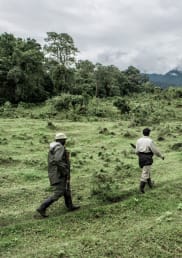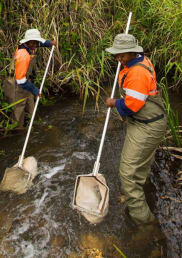A new climate for peace: Taking action on climate and fragility risks
Climate change will stress the world’s economic, social, and political systems. Where institutions and governments are unable to manage the stress or absorb the shocks of a changing climate, the risks to the stability of states and societies will increase. This report, commissioned by members of the G7, identifies seven compound climate-fragility risks that pose serious threats to the stability of states and societies in the decades ahead.
Climate change is a global threat to security in the 21st century. We must act quickly to limit the future risks to the planet we share and to the peace we seek.
Achieving a robust agreement to reduce greenhouse gas emissions is of paramount importance. Yet the relentless momentum of change means that despite future emissions reductions, the physical impacts of anthropogenic climate change are already visible and will continue for decades to come.
The sharpest risks emerge when the impacts of climate change overburden weak states. Climate change is the ultimate ‘threat multiplier’: it will aggravate already fragile situations and may contribute to social upheaval and even violent conflict.
The report is produced in partnership with adelphi, the European Union Institute for Security Studies and the Wilson Center.






